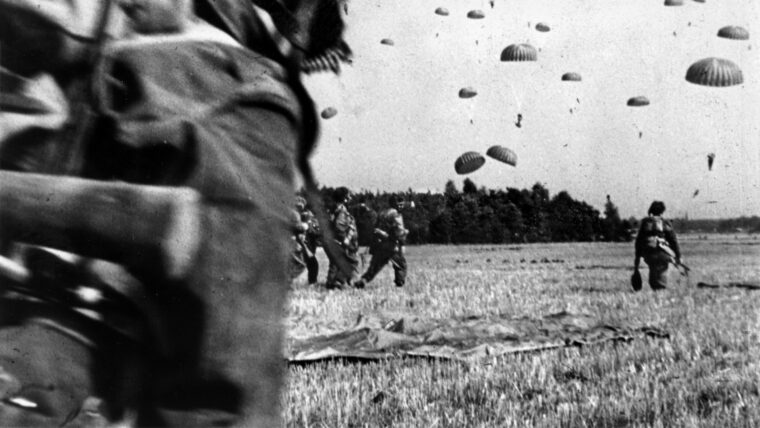
European Theater
Hellish Fight at Arnhem
By John E. SpindlerAs the clock struck 8:00 p.m. in Arnhem, Holland, Lt. Col. John Frost’s British 2nd Parachute Battalion captured the north end of the road bridge over the Nederrijn River. Read more
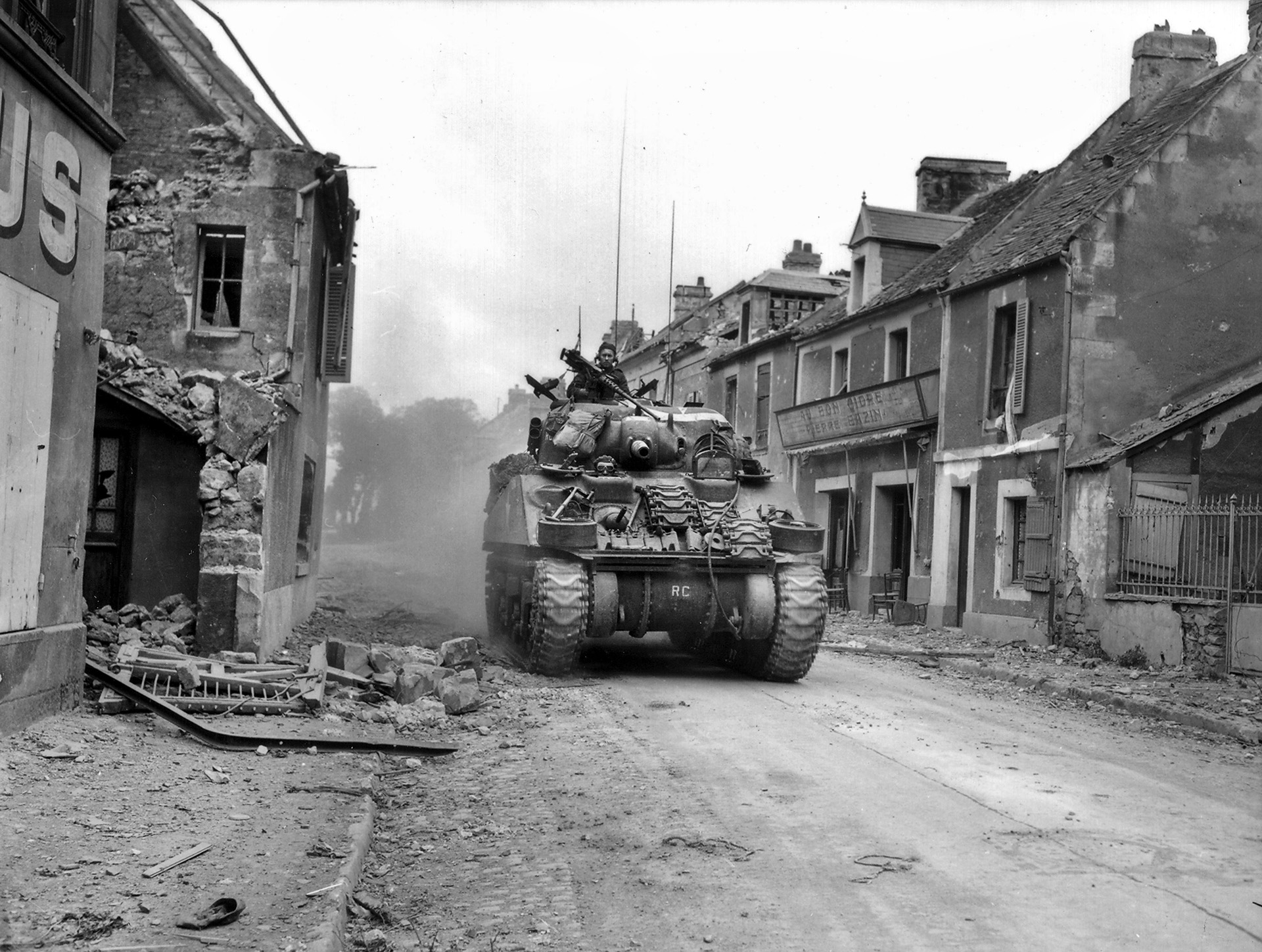
The European Theater of Operations (ETO) during World War II is generally regarded as the area of military confrontation between the Allied powers and Nazi Germany and Fascist Italy. The European Theater encompassed the Atlantic, Mediterranean, Eastern Front, Western Front, and Arctic areas of operation.

European Theater
As the clock struck 8:00 p.m. in Arnhem, Holland, Lt. Col. John Frost’s British 2nd Parachute Battalion captured the north end of the road bridge over the Nederrijn River. Read more
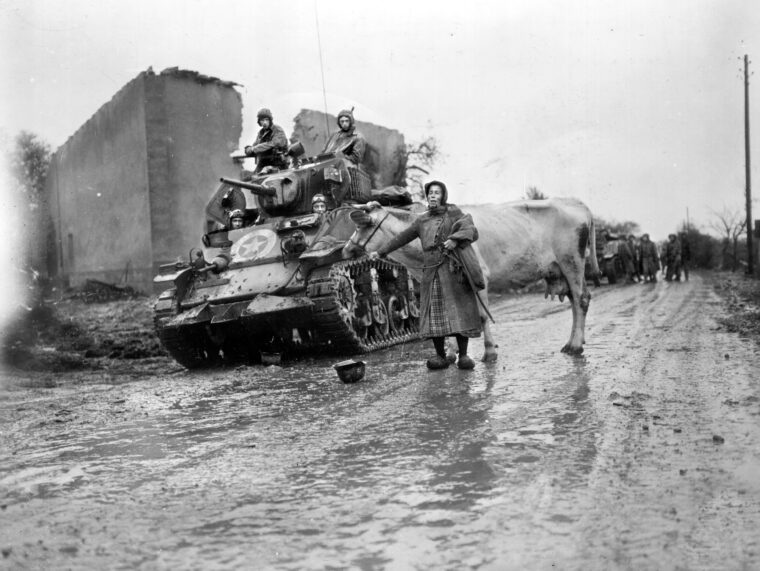
European Theater
Lieutenant Wessling did not believe that his two 75mm assault guns could effectively deal with the German panzers. Read more
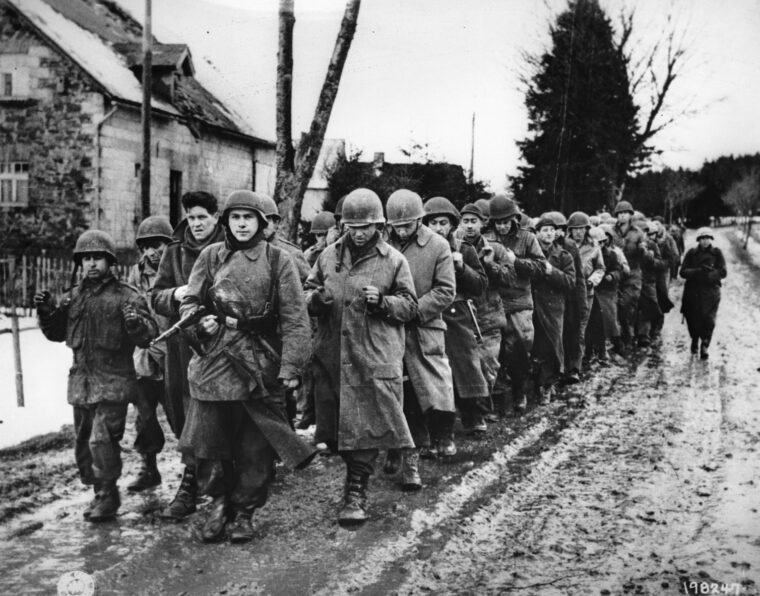
European Theater
Ordered to “hold at all costs,” 300 American soldiers defended the small Luxembourg town of Hosingen during the first three days of the Battle of the Bulge. Read more
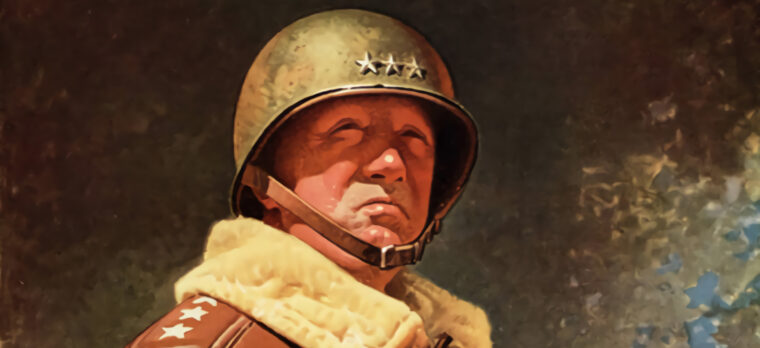
European Theater
Fearless, demanding, and inspirational, General George Smith Patton, JR., was generally recognized as the U.S. Army’s outstanding field commander by the end of World War II. Read more
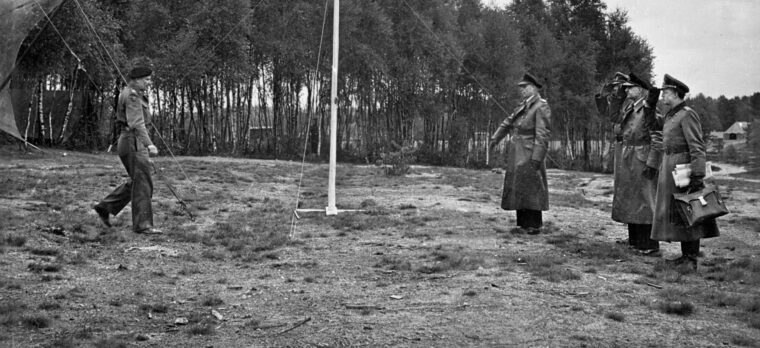
European Theater
“Who are these men? What do they want?” snapped the imperious Field Marshal Sir Bernard Law Montgomery to the four German officers drawn up in front of his caravan, saluting him under a Union Jack. Read more
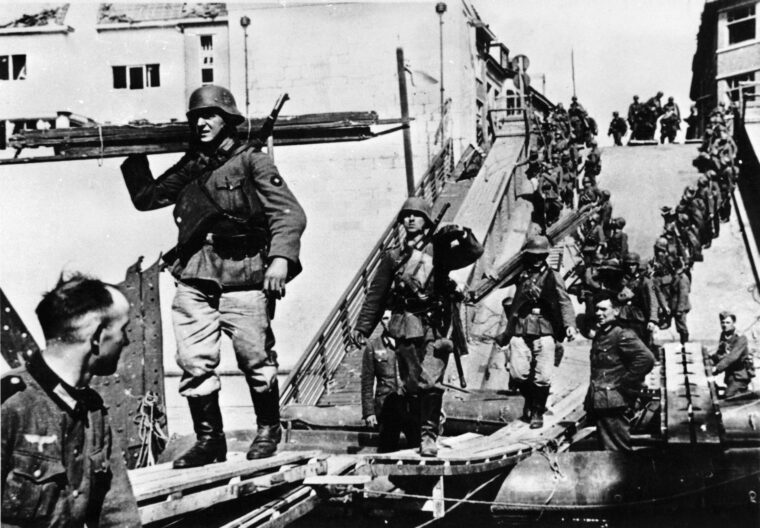
European Theater
Most people are aware of the contributions of King George VI and his consort Queen Elizabeth (later Queen Mother) to the British war effort. Read more
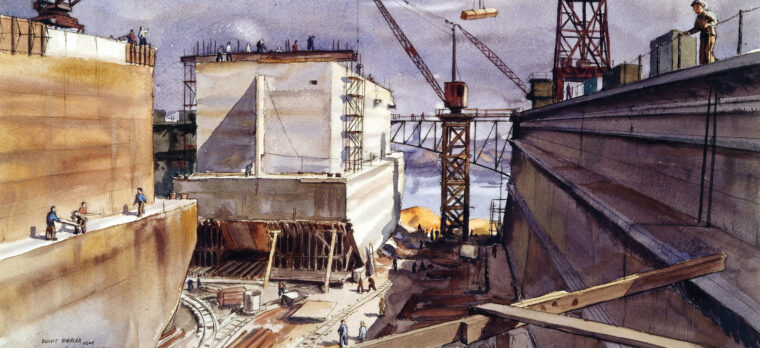
European Theater
One of the major aims of the great Allied invasion of German-Occupied France on D-Day, June 6, 1944, was the securing of the port of Cherbourg on the Cotentin Peninsula in Normandy. Read more
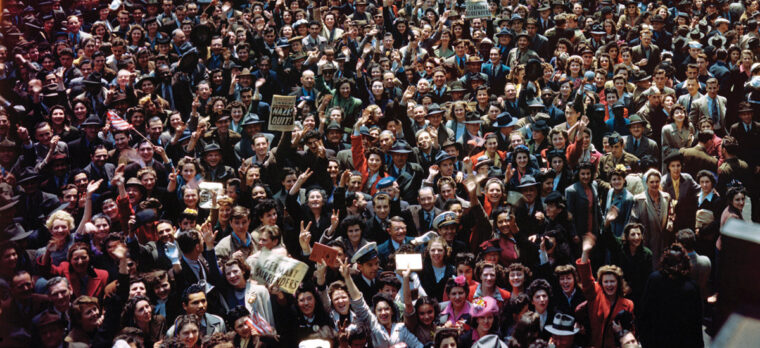
European Theater
On Tuesday, May 8, 1945, a strange sound was heard across all of Europe—the sound of silence. It was as if someone had suddenly flipped the war switch to “Off.” Read more
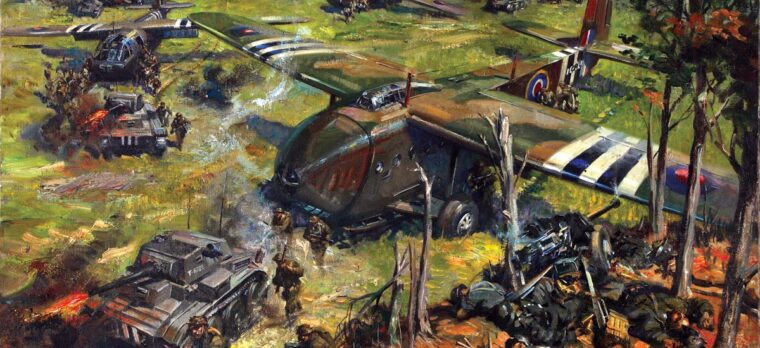
European Theater
Late on the night of June 5, 1944, while American paratroopers were on their way to drop behind Utah Beach, another, smaller air armada carrying 170 British airborne troops was also dashing headlong into battle like an aerial cavalry charge towards the far eastern flank of the Normandy invasion site. Read more
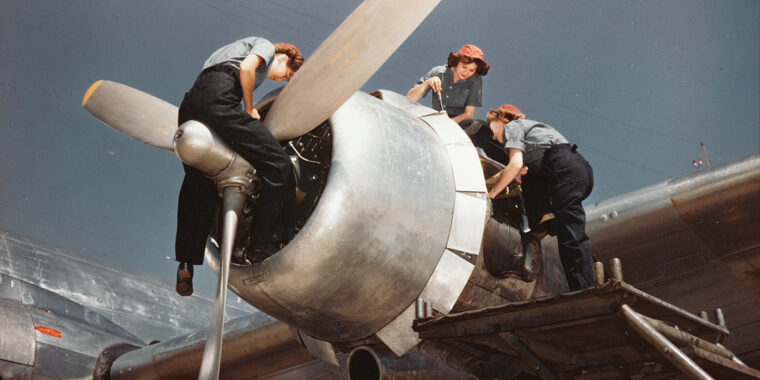
European Theater
On December 7, 1941, Japan bombed Pearl Harbor. The next day, the United States declared war on the Empire of Japan, and the following day President Franklin D. Read more
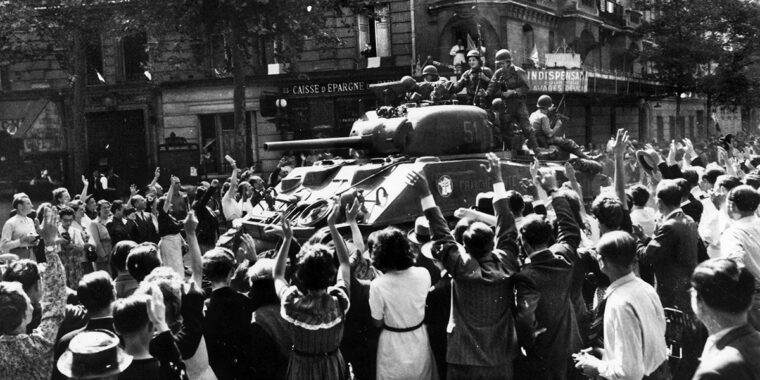
European Theater
At dusk on August 24, 1944, south of Paris, about half a mile from Croix de Berny crossroads, stood a tall, lanky man tapping a malacca cane. Read more
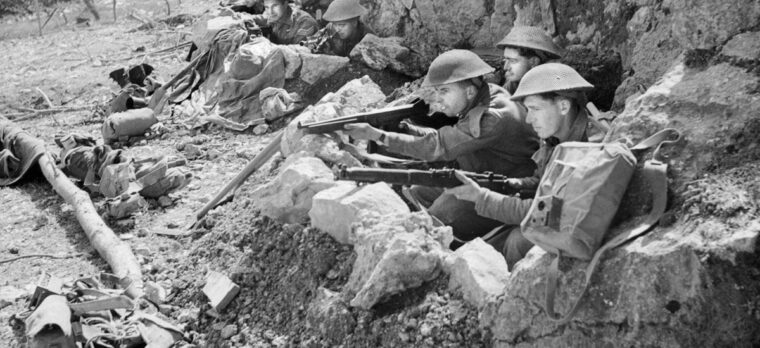
European Theater
It was March 14, 1944, and Private Albert “Albie” Duddy of D Company, 1st/4th Battalion Essex Regiment, was staring up at the monastery on top of the hill at Monte Cassino from a location north of the town of Cassino, Italy. Read more
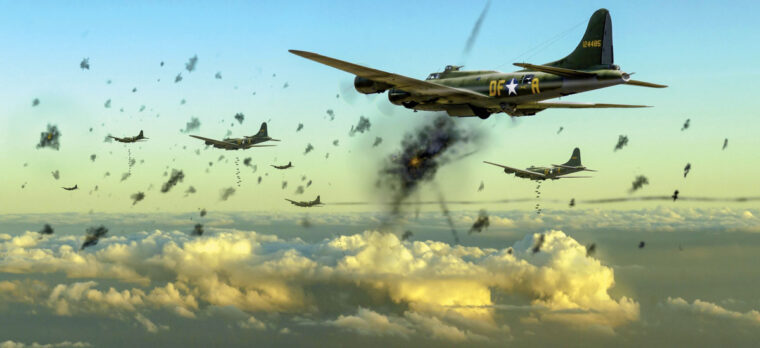
European Theater
In the minds of many military enthusiasts, there was only one bomber in the United States inventory during World War II. Read more
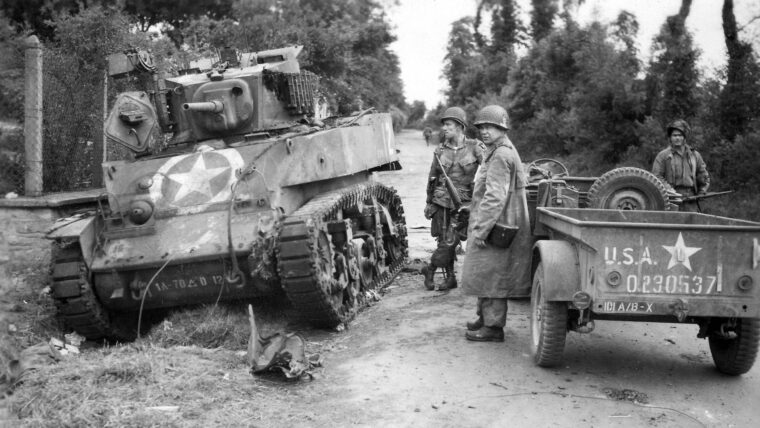
European Theater
“Dead Man’s Corner,”at a road junction south of Saint-Côme-du-Mont, has become one of Normandy’s most famous landmarks. Read more
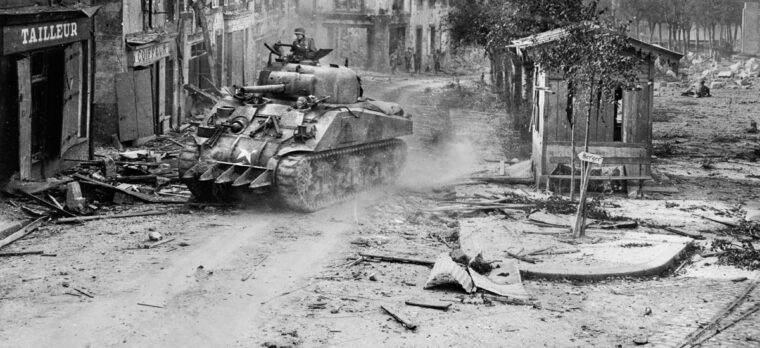
European Theater
In Eisenhower’s Lieutenants, eminent historian Stanley Weintraub wrote that communications in the 1800s between America’s scattered frontier garrisons were slow, which encouraged a tradition of individual initiative in the American army. Read more
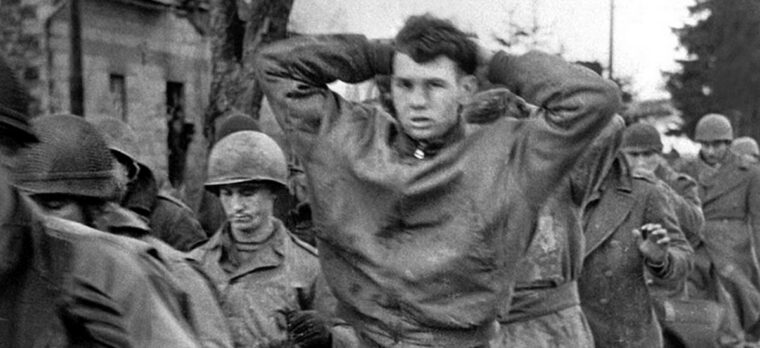
European Theater
By Duane Schultz
The men who were prisoners of war during World War II paid a terrible price in the form of PTSD—post-traumatic stress disorder. Read more
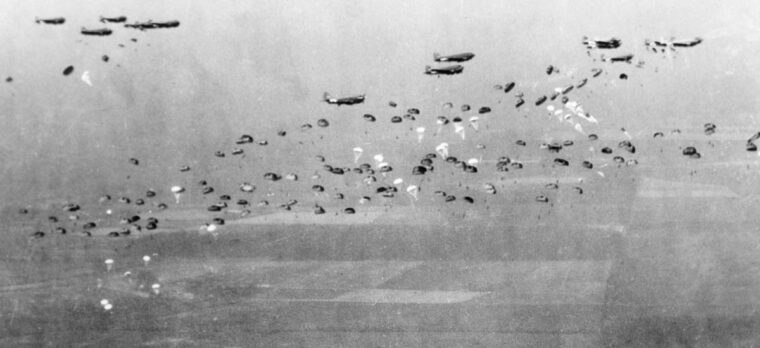
European Theater
In the autumn of 1944, even before the failure of Operation Market Garden, the eyes of Allied commanders were on the great Rhine River, and when the time came to cross the last major natural barrier on the German frontier, American airborne troops would play a key role, while also participating in other operations during the last days of World War II. Read more
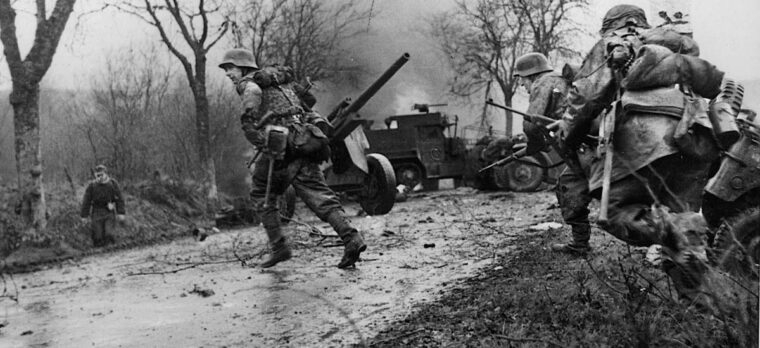
European Theater
By Patrick J. Chaisson
The chief shuffled to his seat in the underground conference room. He sat down heavily, eyes unfocused and dreamy, while a litany of woes was read to him. Read more
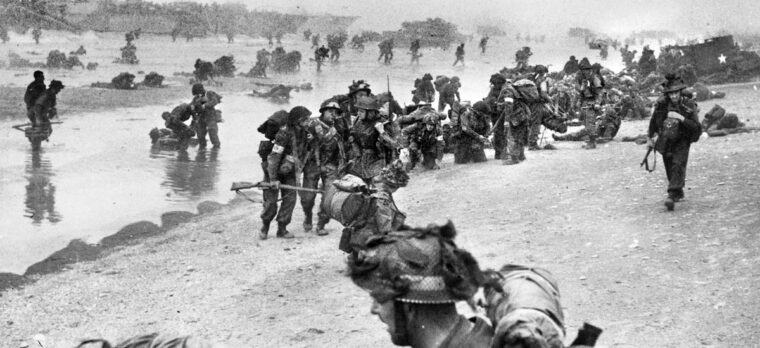
European Theater
The easternmost Allied landing beach of the Normandy invasion of June 6, 1944, was code-named Sword. It was the responsibility of British Maj. Read more
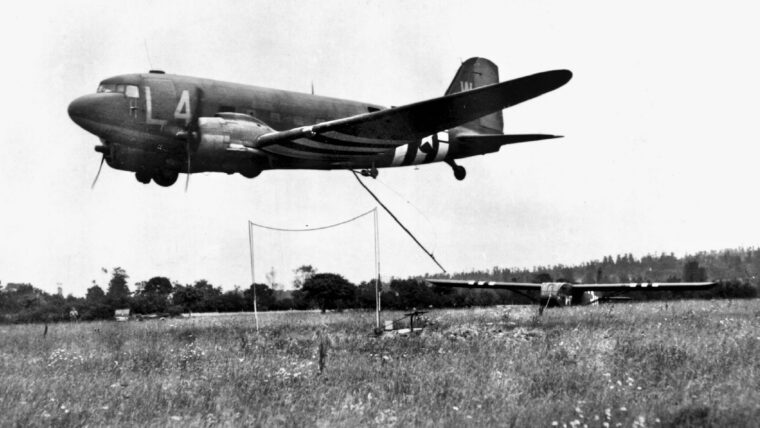
European Theater
High over Normandy, France, eight paratroopers of the 82nd Airborne Division charged out the rear door of their C-47 Skytrain aircraft. Read more